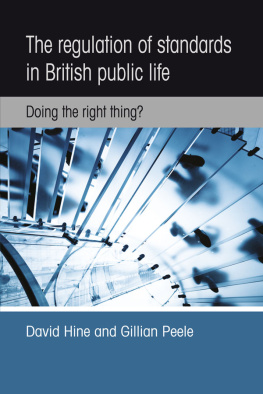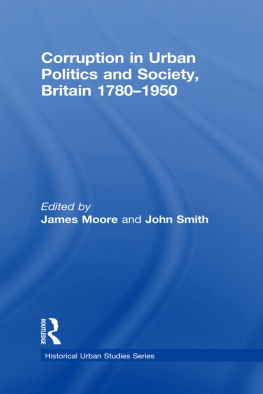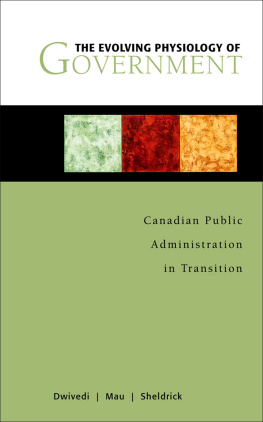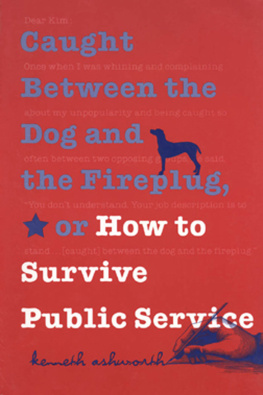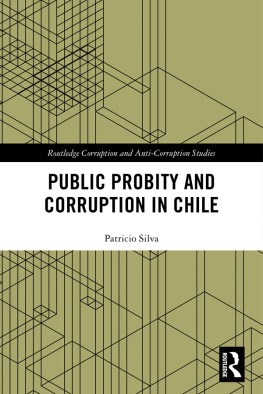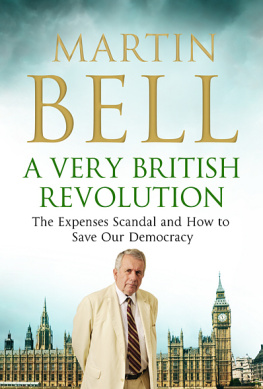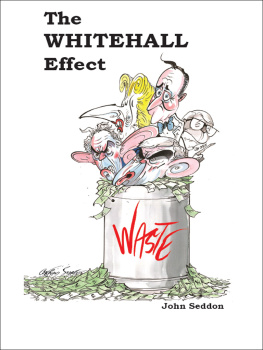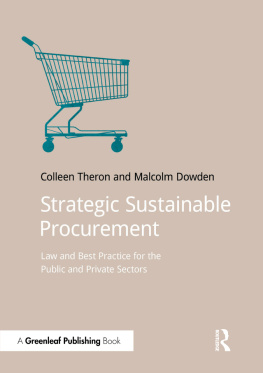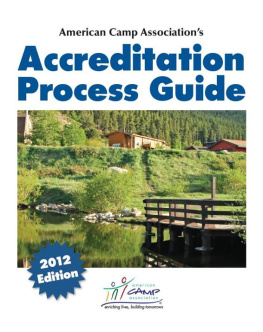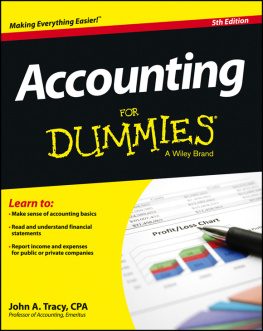The regulation of standards in British public life
The regulation of standards in British public life
Doing the right thing?
David Hine and Gillian Peele
Manchester University Press
Copyright David Hine and Gillian Peele 2016
The rights of David Hine and Gillian Peele to be identified as the authors of this work have been asserted by them in accordance with the Copyright, Designs and Patents Act 1988.
Published by Manchester University Press
Altrincham Street, Manchester M1 7JA
www.manchesteruniversitypress.co.uk
British Library Cataloguing-in-Publication Data
A catalogue record for this book is available from the British Library
Library of Congress Cataloging-in-Publication Data applied for
ISBN 978 0 7190 9713 3 hardback
ISBN 978 1 7849 9267 5 paperback
First published 2016
The publisher has no responsibility for the persistence or accuracy of URLs for any external or third-party internet websites referred to in this book, and does not guarantee that any content on such websites is, or will remain, accurate or appropriate.
Typeset by Out of House Publishing
Contents
This book is about the continuing struggle to ensure that the government of the United Kingdom its institutions, processes and political actors adhere to high standards of probity. It is a story which concentrates on the last twenty years, although the issues it raises have a much longer pedigree. Until the early 1990s the integrity of government in the United Kingdom was widely taken for granted or at least was little discussed. Then, remarkably rapidly, the self-satisfaction was shattered by a series of colourful scandals which emerged to taint the Major governments of 19901997. As the word sleaze bedded into the national vocabulary, measures were initiated in an attempt to restore public confidence in British politicians and in British institutions. A small new body, the Committee on Standards in Public Life, set about creating regulatory machinery which could monitor ethical standards. It started at the countrys constitutional heart, in Parliament, but later broadened out to cover a wide swathe of institutions. Twenty years after its first report we can see a profound transformation of the landscape of British government in the form of new regulatory institutions and processes geared to clarifying, refining and imposing appropriate values in government.
Some have questioned whether the Committee on Standards in Public Life is still needed. We think it is. Several long-standing problems remain unresolved: party funding, lobbying, and corruption in the police are clear cases. Meanwhile, in a political context sensitised by two decades of debate and controversy, new issues continue to emerge both nationally and locally; controversy over ethical issues surrounding the private delivery of public services is a clear case. The continuing salience of the Committees work was underlined as we completed this book by arguments violently stoked by mud-slinging during the 2015 general election over the scale of individual donations to political parties and the enduring temptation lobbying rewards pose to politicians. When confidence in public probity is shaken by events of this sort, and by the memory of bigger ones like the MPs expenses scandal of 2009, new matters easily get sucked into a vortex of continuing public scepticism about standards.
In short, the need for detailed analysis of acceptable standards in public life will not go away. In this book we have traced the iterative process by which values and principles have been analysed, and through which new regulatory institutions have evolved. Taken together, these institutions are an important new feature of the political system. We have concentrated on the key elements, those affecting the executive, legislature, parties, and sub-national government. There are other aspects of the public sphere especially those on the border of public and private life which have recently generated intense controversy, which space prevents us exploring, but which will be fruitful ground for further research. Our analysis reveals the complexity of building regulatory institutions where there is significant disagreement, not about what constitutes improper conduct (though sometimes there is such disagreement), but on the best way of preventing improper conduct. That disagreement may be about the appropriate size of the regulatory burden, the level of internal or public scrutiny office-holders should face, or the balance between self-regulation and independent regulation. On these key questions there are few easy answers, and much disagreement, sometimes honest, sometimes probably disingenuous. It is the detail and complexity of this disagreement on which we concentrate. It is the key to understanding what can work and what may not work in one of the most sensitive areas of public life. We do not claim to have definitive answers, but we believe the lessons of the last two decades need to be studied carefully because they will have to be learned and re-learned by successive generations of public office holders. We hope we have made a significant contribution to that challenge.
David Hine
Gillian Peele
Oxford
Many people practitioners and scholars have helped us during the writing of this book, answering enquiries and talking to us about their work. We cannot mention them all but we are extremely grateful to them for their willingness to share their expertise. In particular we would like to thank Chris Ballinger, Emily Commander, Christopher Johnson, Oonagh Gay, Robert Hazell, Robert Kaye, Sir Christopher Kelly, Brendan Keith, Sir Philip Mawer, Andrew McDonald, Maggie OBoyle, Mark Philp, John Uhr, Hannah White and Brian Walker. We are also grateful for the comments of various anonymous reviewers.
A number of research assistants have given invaluable help. We especially thank Somer Omar and Sam Rowan. The Australian National University gave Gillian Peele a much appreciated opportunity to discuss some of these ideas with colleagues in Canberra. We are grateful also to the Department of Politics and International Relations at the University of Oxford which provided help in many ways including additional research support. David Hine is grateful to the Economic and Social Research Councils Future Governance programme: Lessons in Public Policy (grant no: L216252003), and to the Fell Fund of the University of Oxford, for financial support for parts of the research in this book, and to Christ Church, Oxford for research leave. We also gratefully acknowledge the permission to cite material used in the tables, boxes and figures from the Hansard Society and the Committee on Standards in Public Life.
Any errors are of course our own.
DJH
GRP
ACA | Additional Costs Allowance |
ACOBA | Advisory Committee on Business Appointments |
APPC | Association of Professional Political Consultants |
APPGs | All-Party Parliamentary Groups |
BMRB | British Market Research Bureau |
BNP | British National Party |

